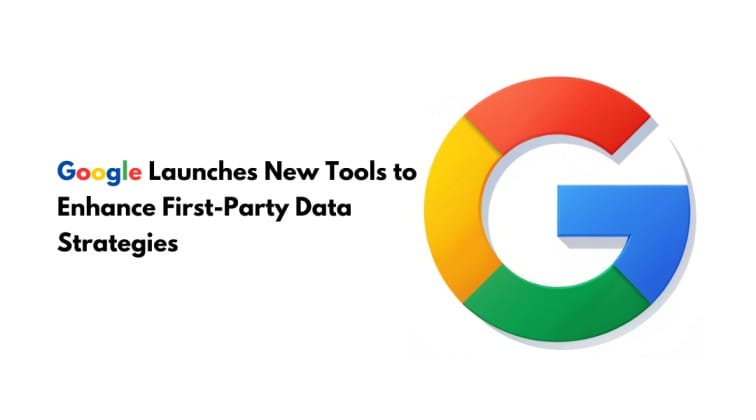In today’s digital marketing ecosystem, the importance of first-party data has become more prominent than ever. As privacy regulations continue to evolve and consumer expectations shift, businesses face the challenge of adapting their data collection and management practices. To support this transition, Google is rolling out two significant features: Tag Diagnostics and an integrated Consent Management Platform (CMP) setup. These tools simplify how businesses collect, manage, and utilize first-party data while respecting user privacy. Now is the time to build a future with first-party data, ensuring your business remains agile and compliant in a rapidly changing landscape.
Why This Matters
First-party data is now the cornerstone of digital marketing strategies. While third-party cookies have been a primary method for tracking user behavior and serving personalized ads, changes in privacy regulations and browser policies are pushing marketers to find alternative solutions. Google’s recent decision to delay the phase-out of third-party cookies does not change the fact that the landscape is shifting. For marketers, first-party data is no longer just an option; it’s a necessity. To effectively leverage this data, it’s crucial to simplify your consent management setup, ensuring compliance and building trust with your audience. Partnering with a reputable digital agency in Chennai can help businesses navigate these changes, implement robust first-party data strategies, and maintain a competitive edge in the evolving digital landscape.
These new tools from Google aim to bridge the gap between privacy compliance and effective data-driven marketing. With a streamlined consent management setup, they provide a seamless approach to managing data collection and consent, ensuring that businesses can continue to leverage data insights without compromising user trust.
What’s New: An Overview of Google’s Tools
Tag Diagnostics
Tag Diagnostics is a powerful new feature that offers an at-a-glance view of your account’s health, specifically focusing on data collection and measurement. This tool is available across Google Tag Manager, Google Ads, and Google Analytics, making it a comprehensive solution for diagnosing and resolving issues related to data tracking services. By leveraging Tag Diagnostics, businesses can ensure accurate data collection and optimize their performance tracking, helping them make informed decisions and improve their digital marketing strategies.
Key Features of Tag Diagnostics:
- Health Overview: The tool provides a snapshot of your account’s overall health, allowing you to quickly identify potential issues that could affect data accuracy or campaign performance.
- Alerts and Notifications: Tag Diagnostics will alert you to any measurement problems, such as missing tags, misconfigurations, or data discrepancies. This proactive approach helps prevent issues before they impact your marketing efforts.
- Guidance and Solutions: In addition to identifying issues, Tag Diagnostics offers step-by-step guidance on how to fix them. Whether it’s a simple tag adjustment or a more complex issue, the tool provides actionable insights to get your data back on track.
By using Tag Diagnostics, marketers can ensure that their data collection is accurate and that their campaigns are optimized for success. This feature is particularly valuable for businesses that rely heavily on analytics to inform their marketing strategies. For companies seeking to enhance their pay-per-click campaigns, partnering with a reliable PPC agency in Chennai can further optimize advertising efforts and drive better results.
The second major update is the introduction of an integrated Consent Management Platform setup. This feature is designed to simplify the process of managing user consent, which is a critical component of compliance with privacy regulations like GDPR and CCPA.
Key Features of the Integrated CMP Setup:
- Streamlined Consent Banner Creation: Creating and managing consent banners can be a complex process, especially for businesses operating in multiple regions with different legal requirements. Google’s CMP setup makes it easier to design and deploy consent banners that are compliant with local regulations and that integrate seamlessly with your existing tools.
- Consent Mode Implementation: Consent Mode is a feature that adjusts how Google tags behave based on the consent status of your users. With the integrated CMP setup, implementing Consent Mode is more straightforward, ensuring that your tags only fire when you have the necessary permissions.
- Integration with CMP Partners: Google’s CMP setup works with some consent management partners, including Cookiebot, iubenda, and User-centric. This flexibility allows businesses to choose the CMP that best fits their needs while still benefiting from Google’s integrated features.
The integrated CMP setup is designed to reduce the complexity of managing user consent, making it easier for businesses to remain compliant while still collecting valuable data.
The Broader Implications: First-Party Data as the New Norm
The introduction of these tools is part of a broader trend in the digital marketing industry. As third-party cookies become less reliable and privacy regulations become more stringent, first-party data is emerging as the gold standard for understanding customer behavior and personalizing marketing efforts.
First-party data refers to information a business collects directly from its audience, such as website analytics, customer purchase history, and user preferences. Unlike third-party data, which is often aggregated and sold by external providers, first-party data is collected with the user’s knowledge and consent, making it more reliable and ethically sound. The Future of First-Party Data lies in its ability to enable businesses to create personalized experiences and build stronger customer relationships while adhering to privacy regulations.
Why First-Party Data Matters?
- Better Customer Relationships: Because first-party data is collected directly from your audience, it is more accurate and relevant than third-party data. This allows businesses to create more personalized experiences that resonate with their customers.
- Improved Privacy Compliance: Collecting first-party data means you have direct control over how the data is collected, stored, and used. This makes it easier to comply with privacy regulations and to build trust with your audience.
- Enhanced Marketing Performance: With first-party data, you better understand your audience’s behavior and preferences. Improved ROI and more focused marketing campaigns are made possible by this.
What’s Next: Google’s Continued Investment in First-Party Data Solutions
Google has made it clear that they are committed to supporting first-party data strategies for businesses. The introduction of Tag Diagnostics and the integrated CMP setup are just the beginning. As the market develops, Google intends to invest in first-party data solutions and introduce additional diagnostics features. For businesses, this means staying ahead of the curve by adopting these tools and focusing on building robust first-party data strategies.
Bottom Line: Google’s Role in the Future of Digital Marketing
As digital advertising undergoes a significant transformation, Google is positioning itself as a key enabler of first-party data strategies for advertisers. By providing tools like Tag Diagnostics and the integrated CMP setup, Google is helping businesses navigate the complexities of data collection and privacy compliance.
This presents a valuable chance for marketers to reevaluate their data strategies and prioritize establishing robust, direct customer relationships. By utilizing first-party data, businesses can ensure compliance with privacy regulations and secure a competitive advantage in today’s data-centric environment.
In conclusion, Google’s new features are a welcome addition for businesses looking to strengthen their first-party data strategies. As the digital landscape continues to evolve, these tools will be invaluable in helping businesses navigate the challenges of data collection and privacy compliance while still achieving their marketing goals.
For More About First-Party Data Strategy with New Tools




